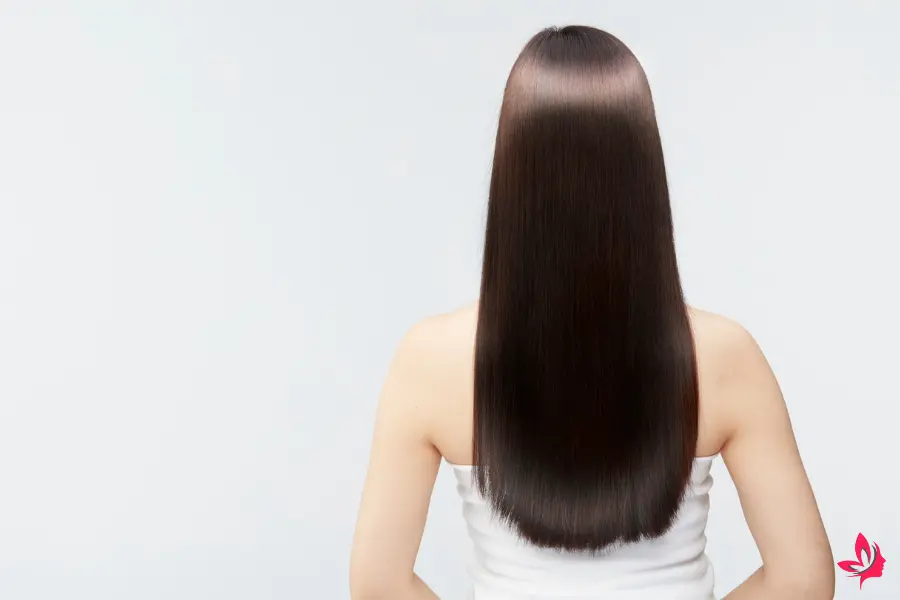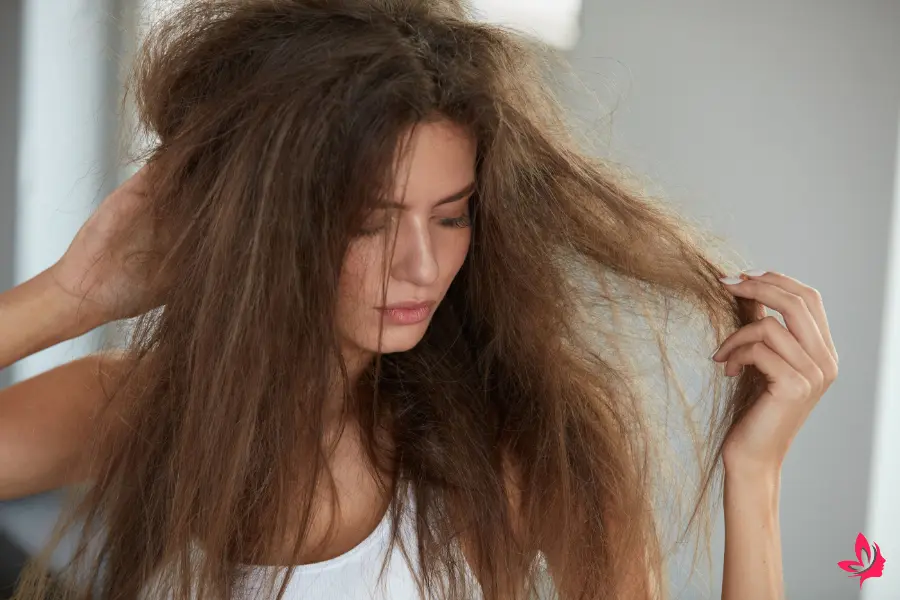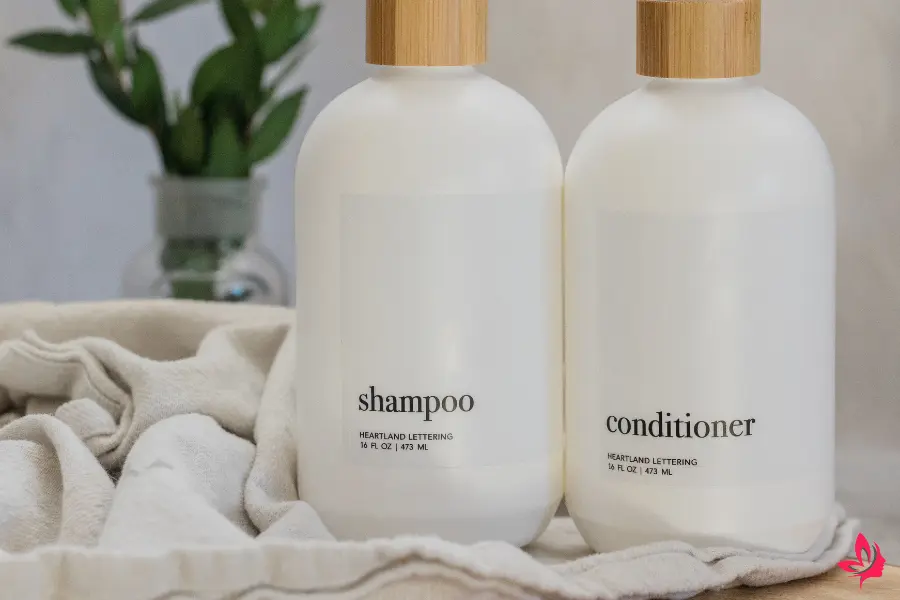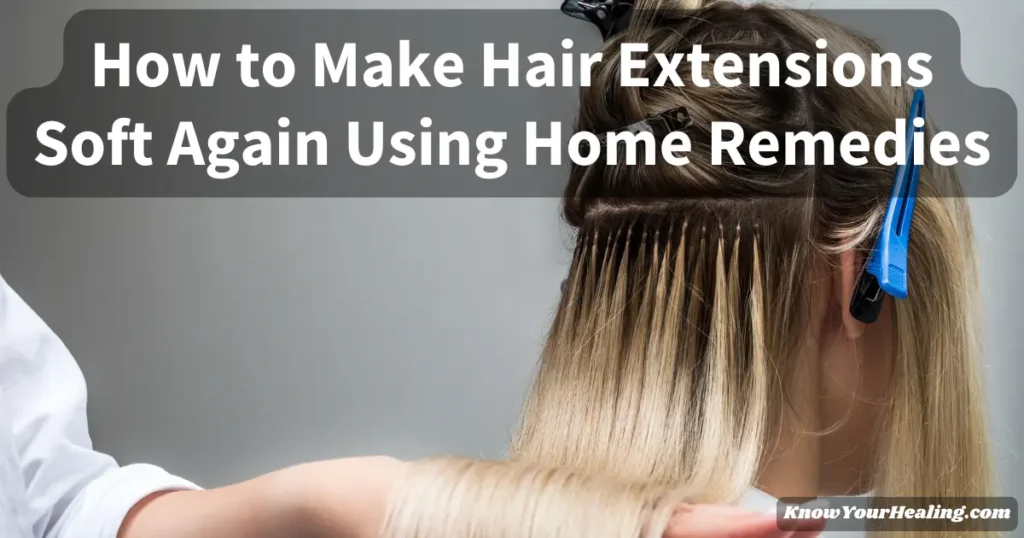How to make hair extensions soft again, home remedies are a common question, as dry, frizzy extensions can be revived with simple treatments that restore softness and shine.
This blog post explores easy ways to transform dull extensions at home. Discover the benefits of deep conditioning, utilizing natural oils, and selecting the ideal products for long-lasting results.
Hair extensions can become brittle over time, making them look worn out. With tips from stylists and practical ideas, you can restore softness without the need for expensive salon visits.
Effective Home Remedies to Soften Dry Hair Extensions

Dry hair extensions can feel rough and lose their shine if not properly cared for. Simple home methods can hydrate and protect both natural and permanent hair extensions using everyday ingredients.
Using Natural Oils to Revive Brittle Strands
Natural oils help treat brittle strands. Argan oil, jojoba oil, and olive oil add moisture to dry hair extensions, providing shine without making them greasy.
Put a few drops of oil in your palm, rub your hands together, and smooth the oil onto the extensions, avoiding the roots and bonds. Use a wide-toothed comb to distribute oil evenly and gently detangle.
Repeat this routine twice a week for best results. Wash extensions with gentle sulfate-free shampoo after oil treatments to prevent buildup.
Avoid excessive heat, as it can dry out hair and exacerbate brittle strands. For more ways to revive extensions, see this guide on repairing dry, frizzy human hair extensions.
How Coconut Oil Nourishes and Softens Hair Extensions
Coconut oil is a popular home remedy for dry hair extensions. Its fatty acids penetrate hair fibers, locking in moisture and adding softness.
Spread a thin layer of melted coconut oil on the mid-lengths and ends of clean, dry extensions. Cover with a shower cap and leave for at least 30 minutes or overnight for deep nourishment.
Rinse with cool water and wash with a gentle shampoo to remove excess oil. Coconut oil can also protect against damage from flat irons and harsh water.
Regular treatments help keep extensions smooth and shiny. This simple solution is safe for most human hair extensions.
The Best Way to Treat Frizzy Hair Extensions at Home
Frizzy hair extensions often result from exposure to chlorine, heat, or hard water. Begin with a gentle cleansing routine, followed by a deep conditioning treatment.
After washing, apply a leave-in treatment with nourishing oils or silicones. Gently detangle your hair with a wide-toothed comb while it is still damp.
Let extensions air dry instead of using hair dryers or flat irons. Sleeping with the extensions in a loose braid helps prevent tangles and friction.
Try a satin pillowcase to reduce frizz overnight. More tips are available for reviving dry, frizzy hair extensions.
Creating Your DIY Hair Mask for Soft, Natural Locks
A homemade hair mask hydrates and revives natural hair extensions. Use ingredients like honey, avocado, and olive oil for a nourishing treatment.
Mix 1 tablespoon of honey with 2 tablespoons of olive oil and half a ripe avocado. Apply the mask evenly to clean, damp extensions, paying particular attention to dry areas.
Leave it in for 25–40 minutes, then rinse thoroughly and wash with a gentle shampoo. Use a DIY hair mask once a week for softer, more flexible extensions.
Avoid the bonds or tapes of permanent hair extensions when applying any mask. This method is simple and uses common pantry items.
Why Leave-In Conditioners Are Essential for Human Hair Extensions
Leave-in conditioners hydrate, protect, and detangle human hair extensions. These products create a moisture barrier, reducing the likelihood of dryness.
Spray or apply a small amount of leave-in conditioner to clean, towel-dried extensions. Focus on the mid-lengths and ends to prevent buildup at the scalp and bonds.
Regular use of leave-in conditioners helps reduce split ends and protects against the damaging effects of heat from styling tools. The right product helps keep hair soft between washes.
Protecting Hair Extensions from Damage Caused by Hard Water and Excessive Heat

Protecting hair extensions from harsh water and heat keeps them soft and manageable. Taking careful steps helps control brittle strands and frizzy hair extensions.
Understanding the Effects of Hard Water and Chlorine Chemicals
Hard water leaves mineral deposits on hair, making extensions feel dry and rough. Chlorine from swimming pools strips natural oils, causing breakage and fading color.
Use a shower filter to remove minerals and avoid pool water when possible. If you swim, wear a swim cap or rinse your hair with clean water after swimming.
A rinse with water and a little lemon juice can help remove hard water buildup. Find more tips on softening hair extensions affected by hard water at guides like Fighting Hard Water Hair Damage.
How to Minimize Damage from Flat Irons and Excessive Heat
Excessive heat makes dry hair extensions brittle and prone to breakage. Flat irons and curling wands can dry out extensions, leading to dullness and split ends.
Keep heat settings low and use a heat protectant spray every time you use hot tools—air-dry extensions instead of using a blow dryer whenever possible.
Finish styling with a light layer of natural oils, like argan or coconut oil, to lock in softness and reduce frizz. Avoid unnecessary heat to maintain soft extensions.
Caring for Permanent Hair Extensions to Maintain Softness
Permanent hair extensions require special care, as you wear them for weeks or months. Wash them with sulfate-free, gentle shampoo to protect the bonds and reduce dryness.
Use conditioners and leave-in conditioners often, focusing on the ends. Apply a DIY hair mask once a week using coconut or olive oil for extra moisture.
Avoid washing too frequently—every 2 to 3 days is enough for most people. When sleeping, loosely braid the hair to prevent friction and tangles.
Using a Wide-Toothed Comb to Prevent Breakage and Tangles
A wide-toothed comb gently detangles hair extensions without causing breakage. Start at the tips and work upward with slow, careful strokes.
Avoid using stiff or stiff-bristled brushes, as they can pull on the bonds and exacerbate frizz. Comb hair and extensions while they are damp, not soaking wet, to reduce stress on strands.
Apply a small amount of leave-in conditioner or detangling spray before combing for extra care.
Effective Methods to Shield Natural Hair and Extensions from Environmental Stressors
Sun, wind, and pollution can dry out and weaken both natural hair and extensions. Wear a hat or scarf outdoors to shield your hair from UV rays and wind.
Apply a protective serum or natural oils, such as coconut oil, before going outside to seal in moisture and protect your skin. Rinse out sweat or dust with lukewarm water and a gentle cleanser.
During extreme weather, keep hair covered and give extensions extra moisture with leave-in conditioners or hydrating sprays.
Daily Care Tips and Maintenance for Long-Lasting Soft Hair Extensions

Daily care for hair extensions keeps them soft and looking their best. Gentle handling and the right products help extensions feel as smooth as natural hair.
Gentle Cleansing Routines for Dry Hair Extensions
Clean hair extensions carefully to avoid stripping moisture. Use a sulfate-free, gentle shampoo for dry or damaged hair.
Stylists recommend washing extensions only when needed, usually once a week or every other week, to prevent dryness. Hard water can leave residue on extensions; therefore, use filtered water whenever possible.
While washing, work the shampoo in the direction of hair growth and avoid rubbing or twisting. After shampooing, apply a deep conditioner for 5-10 minutes for added softness.
Towel-dry by gently blotting—never wring or rub, as this can damage bonds or wefts.
How to Detangle and Manage Frizzy Hair Extensions Properly
Frizzy hair extensions often result from improper detangling. Always use a wide-toothed comb or a soft-bristled brush, starting from the ends and working your way up to the roots.
Wait until extensions are damp and have some slip from conditioner or a leave-in treatment before attempting to detangle. For permanent hair extensions, section the hair and work on small areas at a time.
If tangles are severe, lightly spray on a mixture of water and leave-in conditioner before combing. Avoid aggressive brushing or pulling, especially near the roots, to maintain the strength of the bonds or clips.
Incorporating Natural Oils into Your Daily Hair Care Routine
Natural oils are effective home remedies for keeping hair extensions soft and shiny. Coconut oil, argan oil, and jojoba oil work well when applied lightly to the mid-lengths and ends.
Avoid applying oils to the roots or where extensions are attached, as this can loosen the bonds. Apply a few drops of oil to your palm, rub hands together, and gently smooth it over the extensions.
Use oils as an overnight treatment for deep conditioning or as a quick serum for daily shine. Try making your DIY hair mask using coconut or olive oil to restore moisture to dry hair extensions.
Avoiding Common Mistakes That Cause Brittle Strands
Many simple mistakes can cause hair extensions to become brittle or rough. Avoid using excessive heat.
Heat tools like flat irons, curling irons, and blow dryers on high settings weaken both synthetic and human hair extensions. If you need to use heat, always apply a heat protectant spray and choose the lowest heat setting.
Keep hair away from chlorine in pools and salt in ocean water, as both strip moisture and cause tangling. Limit styling products containing alcohol or sulfates, as these ingredients can dry out the strands.
Trim the ends regularly to stop split ends from traveling up the hair shaft. Use a silk pillowcase to minimize friction during sleep.
The Best Way to Maintain Softness in Human Hair Extensions Over Time
Consistency keeps human hair extensions soft. Use a leave-in conditioner after every wash to lock in moisture and improve manageability.
Apply a deep conditioning mask regularly, focusing on the mid-lengths and ends of your hair. Make sure hair is completely dry before going to bed to prevent matting.
Wear your hair in loose braids at night to prevent tangles and friction against bedding. Avoid sleeping with wet hair, and refrain from pulling extensions into tight styles.
Frequently Asked Questions
Hair extensions often become dry, stiff, or frizzy due to over-styling, a lack of moisture, or the use of harsh products. Gentle, nourishing treatments and proper handling restore their softness and shine.
How do I restore the softness of my hair extensions?
Deep conditioning treatments restore softness. Use a product made for dry hair and leave it in for at least 30 minutes.
Natural oils, such as coconut or argan oil, improve texture. Detangle gently with a wide-tooth comb.
How to rehydrate human hair extensions?
Wash extensions with a sulfate-free shampoo and use a moisturizing conditioner. Apply a leave-in conditioner or hydrating spray for extra moisture.
Warm natural oil helps lock in hydration when applied to the extensions.
How to make human hair extensions silky?
After washing and conditioning, apply a few drops of hair serum or lightweight oil to damp extensions. Avoid using heat tools whenever possible.
Air-dry and brush regularly with a soft-bristled brush to keep the extensions smooth. Use products developed for silky hair consistently.
Can you revive dry extensions?
Steady care and the right products often restore dry extensions. Deep condition your hair weekly and use nourishing oils, such as argan or jojoba oil.
Some people use fabric softener on synthetic hair, but never on natural hair extensions.
How do you revive old human hair extensions?
Start with a deep cleanse to remove build-up. Soak the extensions in a mixture of conditioner and oil to add moisture.
Let them absorb the treatment for several hours or overnight. After rinsing, gently detangle with a wide-tooth comb and let them air dry.
What oil is best for hair extensions?
Argan oil and coconut oil are the best options for hair extensions. These oils prevent dryness and improve manageability.
Jojoba oil is also a good choice because it closely mimics the natural oils in hair. Use small amounts to avoid a greasy or heavy feeling.
How do you fix stiff extensions?
Use a deep conditioning mask after washing to remove stiffness. Oils like coconut or argan oil soften the hair when left on for a few hours.
Gently detangle and avoid harsh brushing to prevent further stiffness.
How to help damaged hair from extensions?
Use strengthening treatments with protein or keratin for hair damaged by extensions. Trim, split, or dry ends as needed.
Give hair regular breaks from extensions to allow natural recovery. Use gentle shampoos and conditioners.
How do you reset hair extensions?
Wash extensions with a clarifying shampoo to remove all product buildup. Apply a deep conditioner and let the extensions dry naturally.
If tangling is a problem, use a detangling spray before brushing.
How do you soften hair extension glue?
To soften glue used for extensions, apply a small amount of extension glue remover or rubbing alcohol along the glue line.
Let it sit for a few minutes. Gently massage the area and try to slide the glue off.
Repeat as needed. Be careful not to pull on the hair too forcefully.


